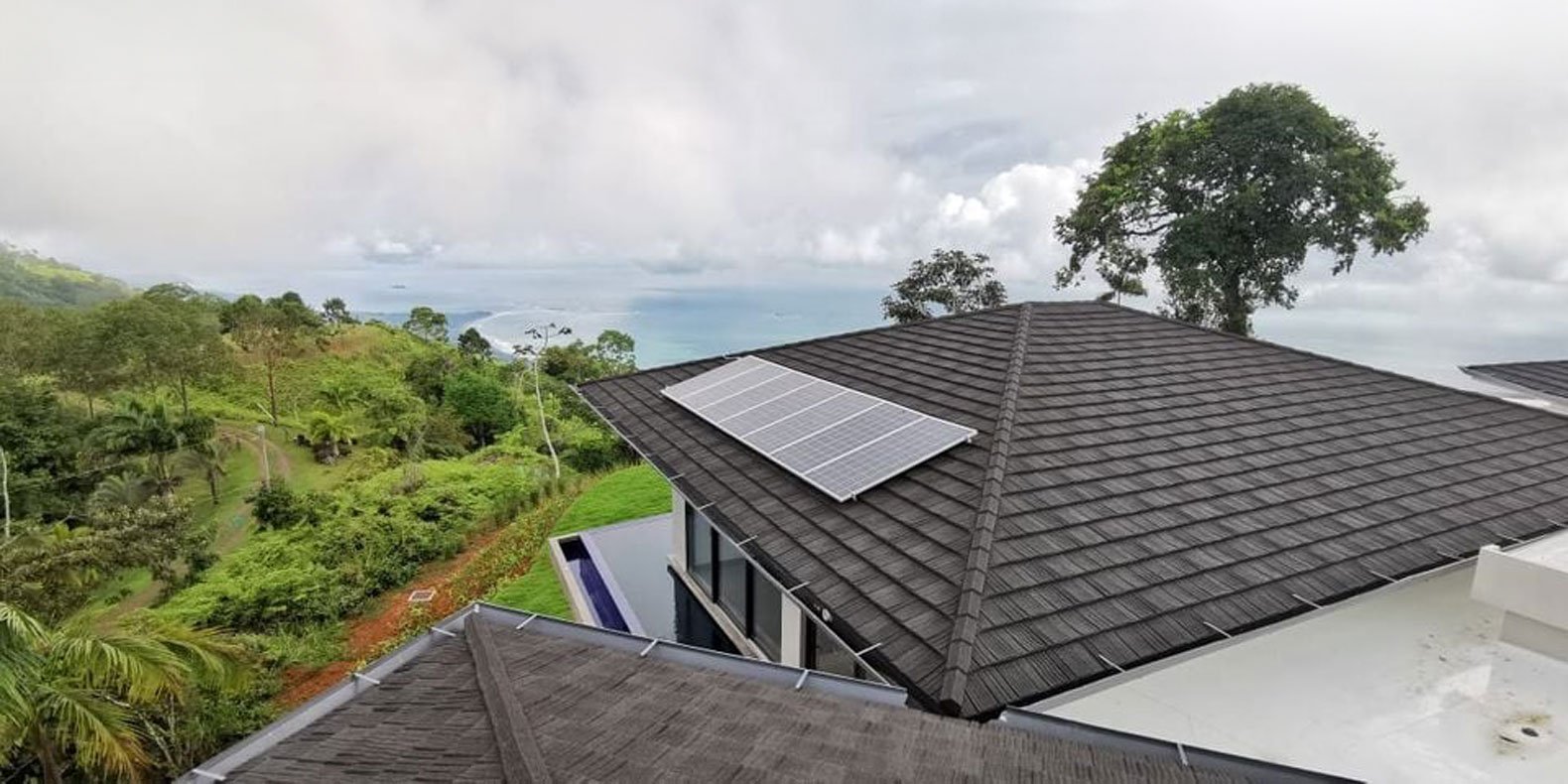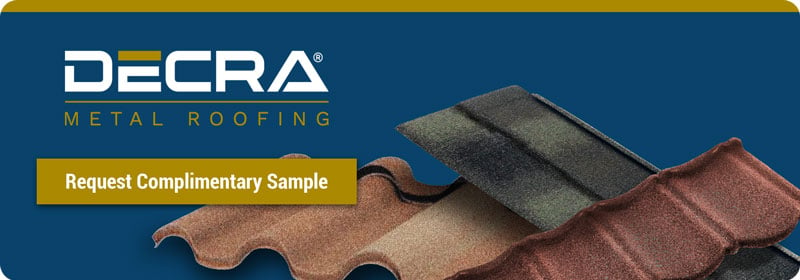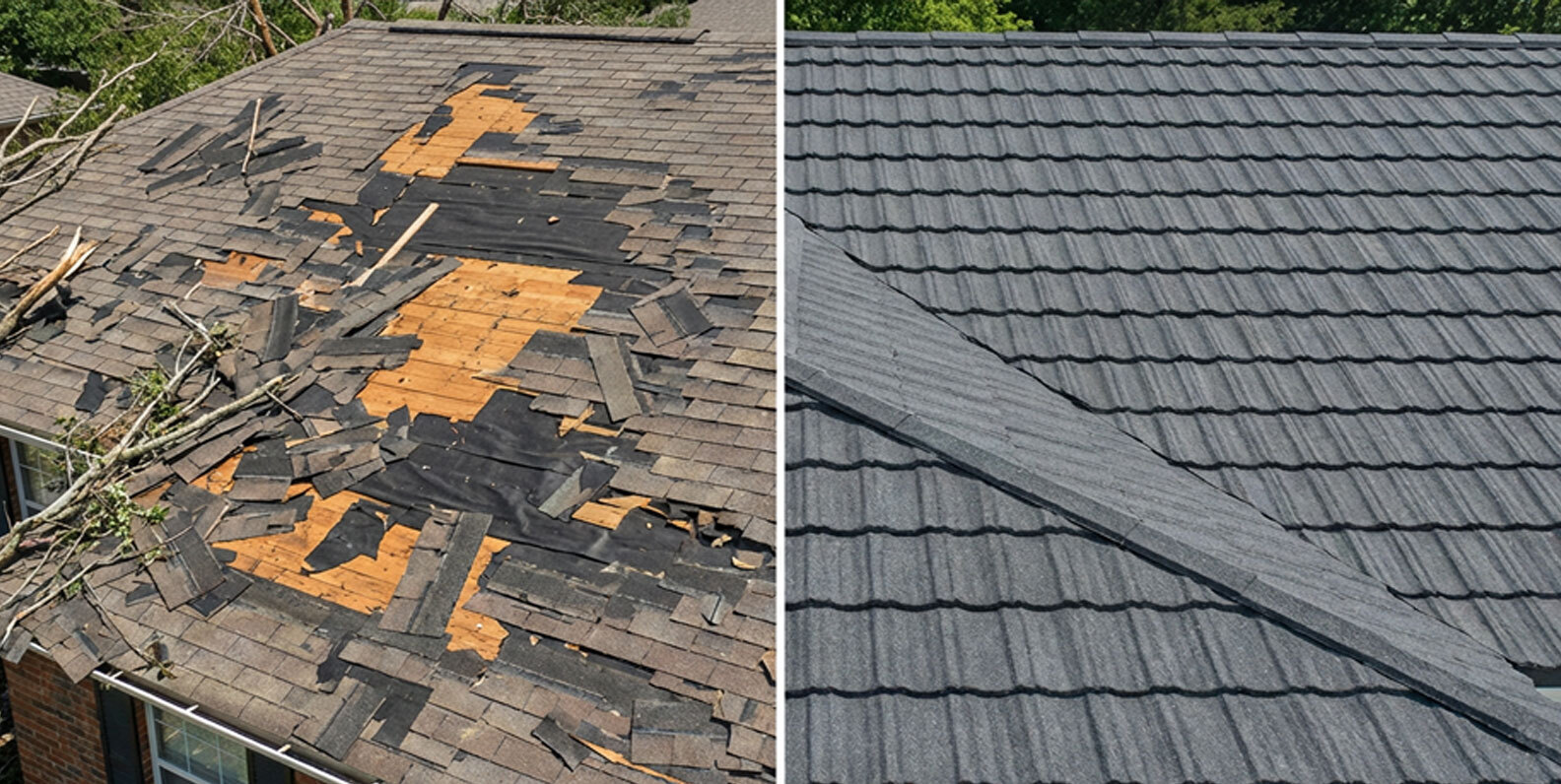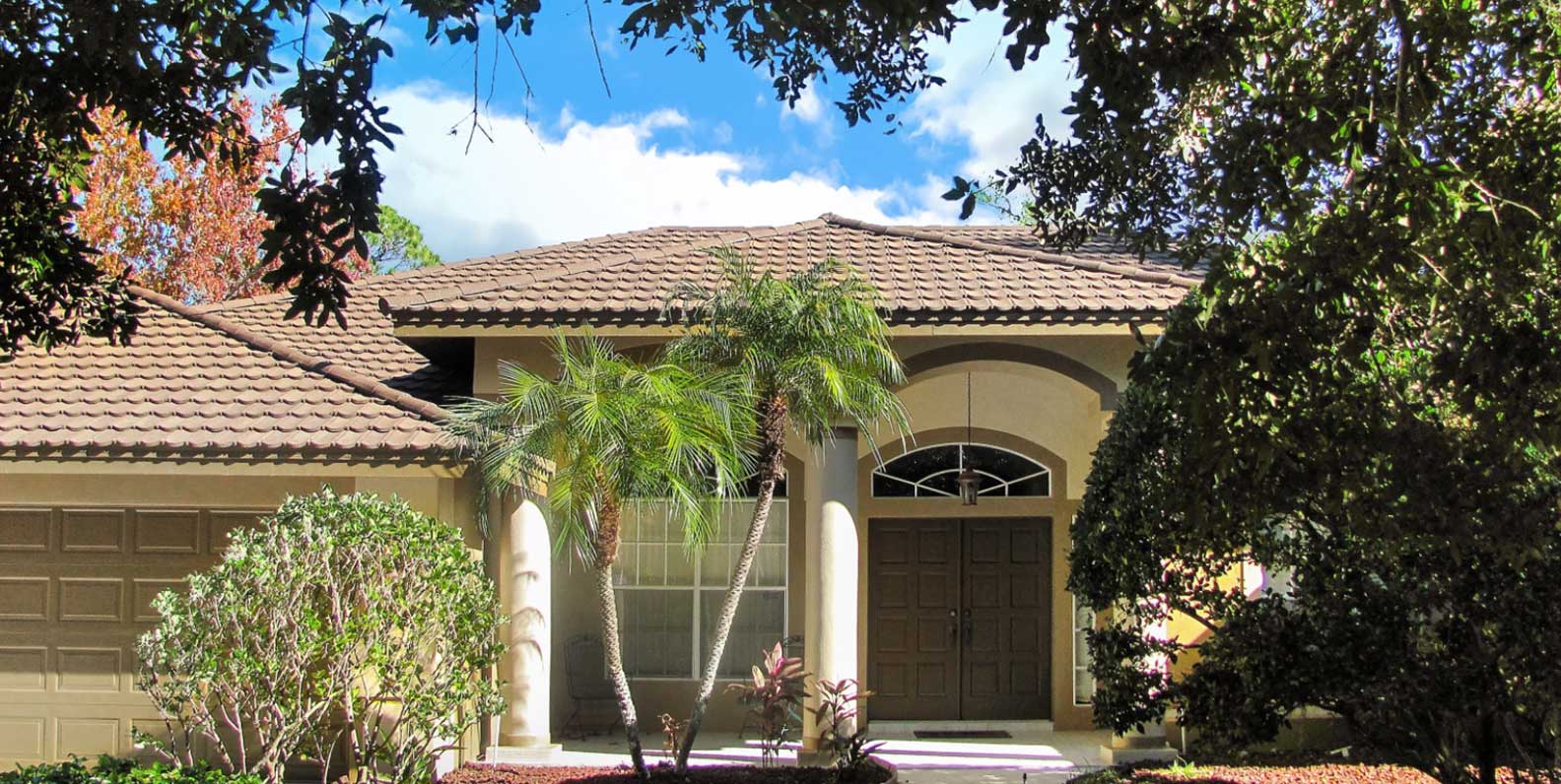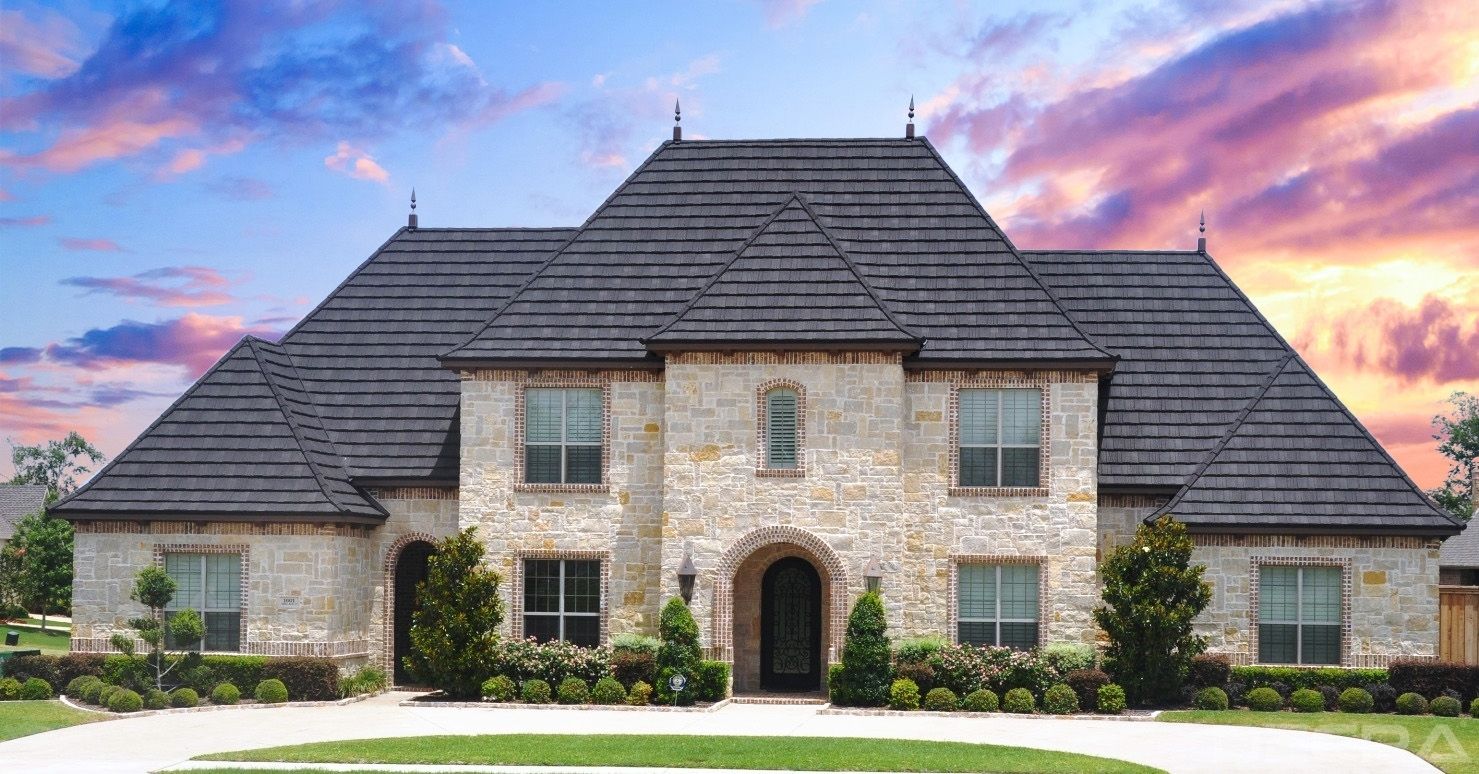Living in the tropical paradise of Costa Rica offers an array of luxuries, but since it lies just 10 degrees north of the equator, the region comes with unique climate and topographical challenges to consider when it comes to roofing.
The challenge for any roofing system in the varied terrain and conditions of Costa Rica is the ability to withstand intense solar radiation, heavy rainfall, high humidity, seismic activity and high winds.
In this guide, we’ll cover what you need to know when searching for the best roofing material for Costa Rica, including:
- How Costa Rica’s climate impacts the roof.
- Key factors to consider when choosing a roof.
- How common roofing materials perform in Costa Rica.
- Essential maintenance tips for Costa Rican roofs.
- FAQs about roofing in Costa Rica.
How Costa Rica’s Climate Impacts the Roof
Unlike the four seasons typically experienced in the U.S., Costa Rica experiences only two seasons: the dry season and the wet season.
The dry season, locally known as 'verano,' runs from December to April. The wet season, known as 'invierno,' spans from May to November. These seasonal variations can significantly affect the lifespan and durability of conventional roofing materials like asphalt shingles, wood shake and clay tile.
For example, frequent torrential downpours during the wet season can lead to water seepage and structural damage if the roof isn't designed to withstand such conditions. And the intense exposure to the sun’s energy and high temperatures during the dry season requires a roofing material that can effectively reflect heat and maintain a comfortable indoor temperature.
In addition to withstanding Costa Rica’s two extreme seasons, the roof needs to withstand high humidity, high winds and seismic activity.
Key Factors to Consider When Choosing a Roof
When researching the best roof for Costa Rica, several critical factors come into play. Here’s what to look for.
First, the ability to endure frequent rain, winds and tropical storms is a must in Costa Rica. Look for a roofing material that can withstand:
- High winds and wind-driven rain. To avoid leaks and other damage from high winds and wind-driven rain, look for a roof that passes the TAS-100 test.
- Impact from storm debris. Look for roofing products that come with a class 4 rating for hail impact. Even though hail is uncommon in Costa Rica, the impact of wind-driven debris can damage the roof.
- Humidity and salt air. Be sure to choose a roof that is resistant to rust and corrosion.
Heat resistance is another significant factor to consider. The roof should provide excellent thermal insulation, effectively preventing heat transfer into your home. Look for a roofing material that has:
- High energy efficiency since the tropical environment and intense solar radiation in Costa Rica can make cooling costs a significant expense.
- Reflective properties that don’t absorb heat, and are able to reflect heat up and away from the home below.
Seismic activity and environmental sustainability are other important factors to consider. Look for a roofing material that is:
- Lightweight. Heavier isn’t better when it comes to roofing. A durable and lightweight roof adds shear strength to the roof–without adding additional weight to the top of the structure where it is the least desirable.
- Made from sustainable materials and is durable enough to last longer than other roofing materials.
How Common Roofing Materials Perform in Costa Rica
Here’s how common roofing materials perform in the intense Costa Rican climate.
Asphalt Shingles
As the cheapest roofing material available, asphalt shingles have the shortest lifespan and need to be replaced as often as every 12 years–even sooner in climates with intense exposure to the sun and UV radiation.
Climates like that of Costa Rica can cause asphalt shingles to become brittle and decompose even more rapidly than they do in the U.S. or Europe. When asphalt roofs become brittle in the dry season, they can leave the underlying roof deck prone to leaks and mold when the inevitable rainy season follows.
Petroleum-based asphalt shingles are neither a sustainable nor environmentally friendly roofing solution. They are also one of the worst types of roofing when it comes to energy efficiency. Asphalt absorbs heat like a sponge and can radiate that heat down into the home below long after the sun has set.
Wood Shakes and Shingles
Wood shake roofing offers a rustic aesthetic appeal, but falls short in terms of energy efficiency, sustainability and durability. Wood roofing requires considerable maintenance and brings with it a host of performance and durability issues. Without extensive maintenance in the moist climate of Costa Rica, wood shake roofs are generally considered unsuitable as a roofing material as they are subject to rot from the high humidity.
Clay and Concrete Tiles
The intense solar radiation in Costa Rica can take a toll on delicate clay tile roofs and require frequent maintenance. Simply walking on a clay tile roof can cause fracturing–making maintenance a tricky operation. Due to their susceptibility to cracks and fractures, clay tile roofs in Costa Rica typically need to be built over underlying metal roofs to prevent leaks during the rainy season.
While concrete tiles are a more durable and cost-effective roofing solution than clay tiles, both are extremely heavy.
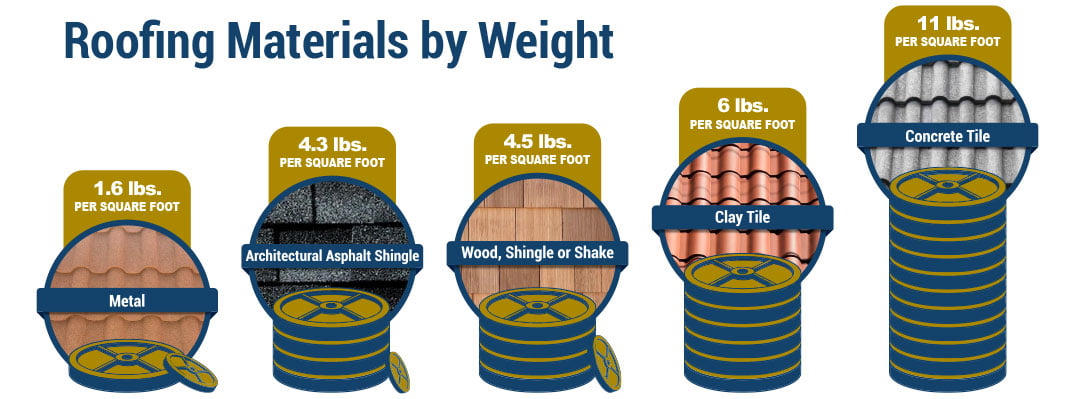
As mentioned earlier, heavier is not better when it comes to roofing–especially in regions prone to high winds and seismic activity. A heavy roof can make the home dangerously top-heavy and vulnerable to side forces from winds and earthquakes.
Metal Roofing
Metal roofing is an excellent choice for Costa Rican homes, offering significant advantages such as longevity, energy efficiency and durability. Its long lifespan and ability to withstand severe weather conditions make it a popular choice.
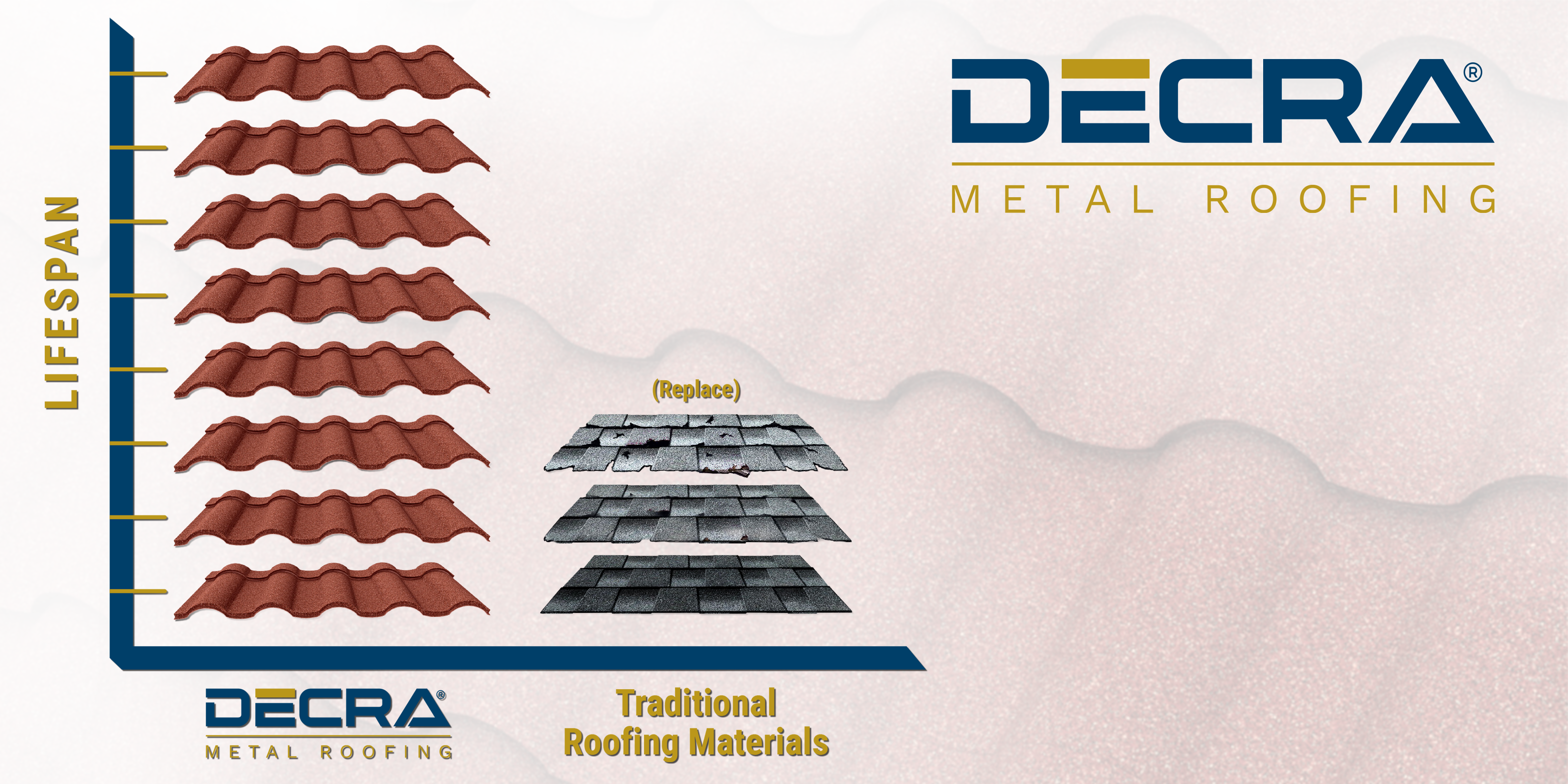
While the initial cost of metal roofing is slightly higher than asphalt shingles, the longevity and durability of a metal roof provide one of the highest returns on investment of any roofing material.
There are several different types of metal roofing. Stone-coated metal roofing is ideal for Costa Rica since it is the most versatile from a design perspective, and is resistant to both rust and corrosion.
Essential Maintenance Tips for Costa Rican Roofs
Regardless of the type of roofing material you choose, proactive maintenance is key to extending your roof's lifespan in Costa Rica. Regular inspections, particularly after the rainy season, can help identify potential issues before they become costly problems.
Be sure to follow these maintenance tips to ensure your roof performs at peak performance.
1. Regular Postseason Inspection
After the wet season, be sure to inspect your roof for any potential damage caused by heavy rains, high winds or damage from wind-driven debris.
2. Gutter Maintenance
Given Costa Rica's heavy rainfall, it’s important to ensure your gutters are clean and free from debris. Clogged gutters can cause water to back up and damage your roof, or worse, seep into your home's structure. Regularly clearing your gutters, especially before the onset of the rainy season, will keep the water flow unobstructed and protect your roof and home.
3. Insulation and Ventilation Check
To cope with Costa Rica's high temperatures, you should ensure that the roof and attic are adequately insulated and ventilated. This will prevent heat buildup in your attic, helping your home stay cooler and extending the life of your roof. Have a professional check the insulation and ventilation systems periodically to ensure they're in optimal condition.
Costa Rica Roofing FAQs
Q: How does the high humidity in Costa Rica affect different roofing materials?
A: Humidity can have a significant impact on certain roofing materials, especially wooden shakes and asphalt shingles. These materials tend to absorb moisture, which can lead to warping, rot and the growth of mold.
Q: Are there specific roofing materials that help keep homes cooler in Costa Rica's hot climate?
A: Yes, roofing materials with high solar reflectance, like metal roofs, can help to reflect sunlight away from your home, reducing heat absorption and helping to keep your home cooler.
Q: How do different roofing materials hold up against Costa Rica's frequent tropical storms and heavy rainfalls?
A: Metal roofs are one of the strongest roofing materials and perform exceptionally well in these conditions due to their durability and resistance to water damage. On the other hand, asphalt shingles may suffer from accelerated wear and tear due to these harsh weather conditions.
Q: Is it easy to source sustainable and eco-friendly roofing materials in Costa Rica?
A: The availability of sustainable and eco-friendly materials can vary, but efforts are being made to promote such options. For instance, metal roofing can be a good choice as it is often made from recycled materials and is fully recyclable at the end of its lifespan.
Q: Does the volcanic activity in certain parts of Costa Rica have any impact on the choice of roofing materials?
A: Volcanic ash and small debris can potentially damage certain types of roofing materials. Metal roofing tends to be more resistant to such damage compared to more fragile materials like clay or concrete tiles. It's important to consult with a local expert if you live in close proximity to active volcanoes.
Have more questions? The experts at DECRA Metal Roofing are here to help!
About DECRA Metal Roofing
DECRA Metal Roofing products have withstood hail, hurricanes, heat, tropical storms, earthquakes, fire and nearly anything Mother Nature has to offer since 1957. The strength of high-grade steel and durable stone coatings make DECRA Metal Roofing the ideal roofing solution for meeting the challenges of the unique tropical climate of Costa Rica.
DECRA roofs feature a unique interlocking system, high-strength fasteners with documented pull-out resistance, and lab-tested installation procedures to verify that our roofs protect against wind far beyond the limits of conventional roofing materials. DECRA roofs also have the resilience and durability to withstand the most challenging wind conditions, even in Florida’s high-velocity hurricane zones.
Our stone-coated metal roofs come with the highest UL2218 Class 4 Impact rating and are known as one of the most durable roofing products on the market.
DECRA roofs are manufactured with multi-layered, high-grade carbon steel hot dipped and coated on both sides with a corrosion-resistant 55% aluminum-zinc alloy. DECRA conducts rigorous tests to ensure that all products can withstand high-corrosion, moist, high-humidity, and salt air environments such as Costa Rica.
Other benefits of a DECRA metal roof include:
- Longevity: Metal roofs last two to three times longer than traditional roofing materials.
- Energy-Efficient: As one of the most energy-efficient roofs available, metal roofs can reduce energy costs by up to 25%. The solar reflectivity and infrared blocking pigments in DECRA’s stone-coated steel dispel intense solar radiation up and away from roofs, unlike asphalt shingles and other roofing materials that absorb heat like a sponge.
- Low Maintenance: Unlike asphalt shingles or clay tiles, metal roofs don’t require expensive upkeep or frequent repairs.
Ready to see and feel the DECRA difference? Order a complimentary sample today!
Editor’s Note: This blog was originally published in June 2020 and has been updated with relevant information.

